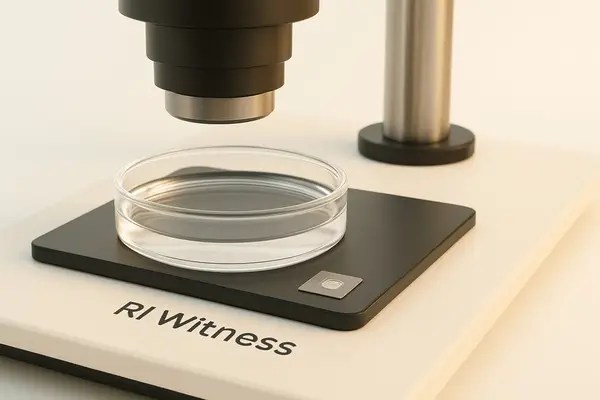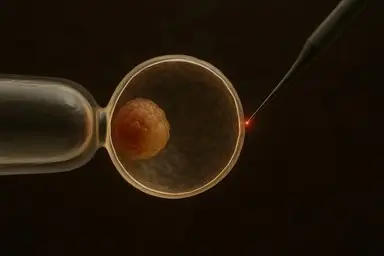IVF/ICSI
Discover how Luma’s advanced technology and expert care are transforming IVF success rates.

Fertility can feel confusing, but you’re not alone.
Navigating fertility can seem overwhelming, but you are not alone on your IVF journey, we’ve been on this journey too.
Who Should Consider IVF/ICSI?

If you’ve been trying to conceive without success

If you have underlying medical conditions
Common Reasons for IVF/ICSI
Ovarian Conditions
Tubal Factors
Uterine Conditions
Hormonal Imbalance
Sperm Count and Quality
Ovarian Conditions
Tubal Factors
Uterine Conditions
Hormonal Imbalance
Sperm Count and Quality
Our IVF/ICSI Services

Second Opinion

IVF / ICSI

Male Fertility

Second Opinion

IVF/ICSI

Male Fertility
Our Cutting-Edge Technology

Genetic Testing

Laser-Assisted Hatching (LAH)

RI Witness System

EmbryoGlue
Our Expertise in Male Fertility

PESA (Percutaneous Epididymal Sperm Aspiration)

TESE (Testicular Sperm Extraction)

MicroTESE (Micro-Dissection Testicular Sperm Extraction)

Simultaneous Staged Sperm Retrieval
Our Cutting-Edge Technology
Genetic Testing
Laser-Assisted Hatching (LAH)
RI Witness System
EmbryoGlue
Meet Our Experts

Dr. Radhika Sheth

Chirag Shah

Dr. Rupin Shah
Your IVF Journey at Luma
Fertility Consultation & Assessment:
45 mins
Your journey begins with a consultation with our expert to review your medical history and receive a tailored fertility plan. Key tests like AMH, FSH and AFC determine your fertility health.
Ovarian Stimulation & Trigger Shot:
For stimulating egg production, there are daily hormone injections. Regular ultrasound and blood tests monitor the progress. A trigger shot finally prepares the eggs for retrieval.
Egg Retrieval & Sperm Collection:
A minimally invasive procedure under anaesthesia is performed to retrieve the eggs. If using a partner’s sperm, it is collected and prepared for fertilization the same day.
Fertilization & Embryo Culture:
Eggs are fertilized with sperm and monitored for development. The best embryos for transfer or freezing are assessed after several days of culturing.
Embryo Transfer:
A quick and painless procedure transfers one or more embryos to the uterus once they reach the perfect stage. The number of embryos transferred is based on age and quality of embryo.
Pregnancy Test:
Pregnancy is confirmed via a blood test that measures the Beta HCG levels, two weeks after the transfer.
Why Luma Fertility?

AI & Tech-Driven Success
- Evidence-based Medicine: Treatments are tailored to every individual with a focus on outcome.
- Lab technology: Our state-of-the-art labs with technologies like RI witness ensure transparent and accurate treatment.
- AI enabled: Integrated with world’s leading IVF lab and egg quality assessment tool, Violet AI
Patient-centric experience
- Care Navigator: Your dedicated point of contact for seamless support.
- Quick appointments: Our streamlined schedule ensures no long queues and stress-free care.
- Flexibility & Convenience: Schedule appointments on days convenient for you, not the other way around.


Tech-Enabled, Hassle-Free Care
- Luma App: Track your progress, schedules, and treatment updates in one place.
- Luma AI: Clear your doubts with evidence-based answers.
- Expert guidance: Easy access to experts when you need it.
Holistic & Empowering Care
- Full Body Approach: We prioritise emotional and physical wellbeing
- Compassionate Guidance: A team that offers all-round care through every step.
- Personalized: A journey that offers clarity, confidence, and control.

Testimonials
R.P
Design Professional
Mumbai, India
M.S
Mumbai, India
N.B
Mumbai, India
A.M
Mumbai, India
R.P
Mumbai, India
A.M
Mumbai, India
K.J
Mumbai, India

IVF FAQs
What is IVF, and how does it work?
Who should consider IVF?
How is IVF at Luma different?
What are the success rates of IVF?
How many IVF cycles will I need?
Is IVF painful?
Can I freeze embryos for future use?
What lifestyle changes can improve my IVF success?
What happens if my IVF cycle isn’t successful?
How do I get started with IVF at Luma?
Curious to know more about our fertility preservation services?
Curious to know more about our fertility preservation services?
Luma fertility: Your Partner in Hope, Care & Parenthood
IVF Tools & Calculators
Understanding IVF Costs
IVF Side Effects & Safety
Advantages of IVF
Pre-IVF Checklist
- We conduct female fertility testing, including ovarian reserve, AMH testing, along with semen analysis and hormone testing.
- Our fertility experts will create a personalised plan for you listing lifestyle habits, nutrition and exercise.
- The IVF treatment may take a toll on some hence emotional readiness is very important. Managing stress and setting realistic expectations will help you navigate the process comfortably.
- Open communication with your partner and attending appointments together will help you both go through the process with significant ease.
